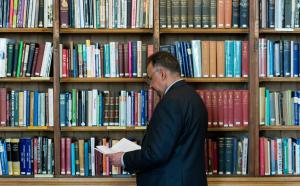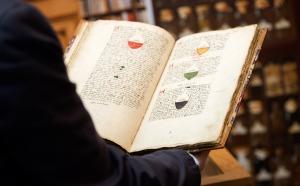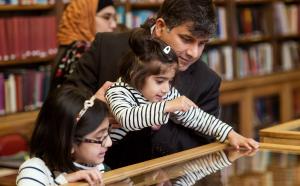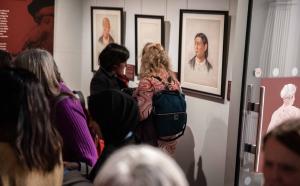
Dr Michael F Sudlow FRCPE, FRCP
Dr Michael F Sudlow FRCPE, FRCP
Born: October 14th 1939, Blackpool
Died: July 21st 2025, aged 85, of complications following pelvic fracture, and Alzheimer’s disease
A respiratory physician who after an early period in lung physiology in London became a notably conscientious respiratory medicine consultant in Edinburgh, combining his patient care and teaching of students and postgraduates with a very active cultural and outdoor life and, after retiring from the NHS, led the Government’s compensation scheme for coal miners in Scotland and NE England.
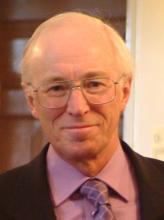
Michael Sudlow was the first in his family to go to university. His father Thomas had a window cleaning business and was interested in classical music, an interest he passed on to his only son. Michael, an exceptional scholar, had an excellent education at Blackpool Grammar School and gained a place at St Thomas’s Hospital Medical School, qualifying in 1964. He had already succeeded in persuading a fellow student, Liz Lytle, daughter of a surgeon, to marry him, which she did on qualification. Michael’s house physician post was at St Thomas’s and Liz’s in Stoke on Trent. However, Michael moved closer to her in his surgical house job in Birmingham, and then to an SHO job in Stoke when their first child was born.
On passing his MRCP in 1967, Michael got a registrar post back at St Thomas’s. This was a time of considerable change in scientific respiratory medicine, particularly in the investigation of lung function and deposition of particles. This fascinated Michael and his next move, in 1968, was to an appointment as clinical assistant at the Brompton Hospital and as research fellow and then lecturer at the Physiological Flow Studies Unit of Imperial College. Here, he was a member of a notable trio of investigators, with mathematician, Tim Pedley, and bioengineer, Bob Schroter, combining physiology with engineering and mathematical modelling to understand air flow in the respiratory tract. This was to prove of considerable significance to understanding the effects of particulate matter in the lungs and prevention of harm from such particles.
By 1972, Michael was being spoken of as one of the brightest young lung physiologists in Britain and, encouraged by fellow Lancastrian, Prof David Flenley, he obtained a post of lecturer in the Department of Medicine in Edinburgh in that year, later being promoted to consultant in respiratory medicine and honorary senior lecturer in 1977. While his interests in respiratory research continued through ongoing collaborative contributions, his motivation came mainly from care of patients and teaching, his original vocation. Notable contributions included training in flexible bronchoscopy in the late 1970s in the US and introducing colleagues in Edinburgh to this then novel investigative procedure, advising colleagues in India on the management of respiratory complications following the Bhopal pesticide gas leak disaster in 1984, visiting and reporting on respiratory disease management in Gaza in 1986 as a WHO expert advisor, and supporting postgraduate medical education in Edinburgh through several years as Associate Postgraduate Dean. He worked as a full-time consultant at both the Edinburgh Royal Infirmary and City Hospital, retiring from the NHS at the age of 60 years. His retirement coincided with the start of the UK government coal miner’s respiratory compensation scheme, and he became regional advisor for Scotland and NE England to the panel set up to assess claims of disability from lung disease in coal miners. He was responsible for over ten years for quality assurance of the scheme, and for training many of his consultant colleagues to work as assessors while assessing many claimants himself. He subsequently worked as a medical expert on disability tribunal panels and forged lasting friendships with legal professional colleagues. He retired fully from medical practice at the age of 75 years.
Disability benefit assessment was far from Michael’s only retirement activity. All his life, he and his wife, Liz, who worked in medical gynaecology in Edinburgh, had been keen hill walkers, travelling on holiday to places where physical exertion was expected. They cajoled three sometimes recalcitrant children up the mountains of North Wales, Scotland and Switzerland. Later, the two of them celebrated bagging all 280 Munros, and took on intrepid treks across Europe, Turkey, South America, and the Himalaya. Music, especially opera, and fishing were other passions, involving a wide circle of friends. He also gave much time to the Senior Fellows’ club of the RCPE, acting as its very efficient secretary and founding and organising its hill walking group.
It came as shock to his friends when in the early 2020s he told his friends that his memory was failing. He was diagnosed with Alzheimer’s disease but, supported by Liz and their children, was able to remain at home and remained active until a fall in his garden led to a pelvic fracture and a speedy but ultimately peaceful end. He leaves Liz, three children, (two consultants and a psychotherapist in the NHS), and four grandchildren.
Catherine Sudlow
Anthony Seaton

